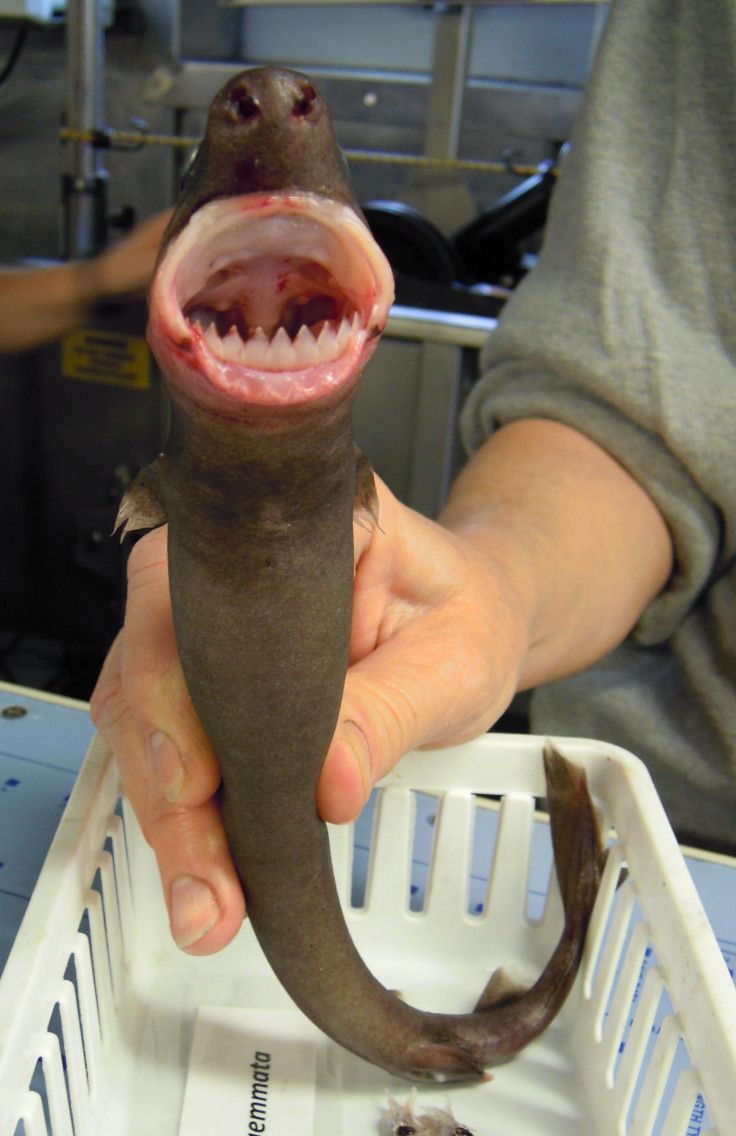Multiple sharks attack yacht off Australian coast, forcing sailors to call for rescue
The catamaran was reportedly attacked by cookie-cutter sharks.

In a rare incident reported in the Coral Sea off the northeast coast of Australia, multiple sharks attacked a catamaran and damaged its hulls.
According to a statement issued by the Australian Maritime Safety Authority (AMSA), three men were rescued from the damaged catamaran on Wednesday. The three sailors, two Russians and a French citizen, were on a round-the-world expedition and left St. Petersburg on July 1, 2021.
The catamaran was reportedly attacked by cookie-cutter sharks. These sharks attach themselves to their prey and then spin to scoop out a cookie-shaped plug of flesh from them. They do not grow beyond 50cm and are said to be parasites.
Several satellite videos of the damaged boat have gone viral on social media. It shows a large part of the stern of the yacht torn away. AMSA had to take the help of a Panama-flagged vehicle carrier to carry out the rescue operation successfully. The three men are expected to reach Brisbane on Thursday.
3 sailors were rescued off the QLD coast after their vessel reportedly started to sink following multiple shark attacks. #sharks #sharkattack #sharkattacksurvivor #catamaran #sailing #sharkwaters #expedition #searchandrescue #amsa #oceanrescue #savedatsea #qldcoast pic.twitter.com/K7PmPqBG4M
— Empact News (@EmpactNews) September 6, 2023
"The vessel departed from Vanuatu and was bound for Cairns (Australia) when contact was established. Both hulls of the vessel have been damaged following several shark attacks," read the statement.
Shark attacks are not uncommon in Australia. Earlier this year, a 16-year-old girl died after being mauled by a shark while swimming in a river in Perth, Western Australia. The incident took place when the victim, identified as Stella Berry, jumped into the Swan River to swim with a pod of dolphins.
Berry was jet skiing with friends when she spotted a pod of dolphins and decided to jump into the river, not knowing that a shark was also around. She was pulled out of the river with "critical injuries." The paramedics tried to save her, but she died at the scene.
Australia has been experiencing increased shark attacks over the last few years. At least 88 sharks have been sighted between Jurien Bay and Esperance this year. Experts have attributed the phenomenon to changes in the environment, such as rising sea temperatures and over fishing.
The authorities had to close one of Sydney's famous beaches for a brief period after sharks brutally attacked a dolphin off the coast of Sydney in January this year. The dolphin was mauled by at least one suspected bull shark. It was seen circling in the water with its tail injured before it beached off on the shore.
Such incidents are extremely rare in Sydney. Last year's shark attack on a British swimmer was the first such fatal shark attack in nearly 60 years.
The 35-year-old man, Simon Nellist, died in the attack just off Little Bay in east Sydney in February last year. He was reportedly attacked by a great white shark. He was a diving instructor and a regular swimmer at the beach.
What to do in case of a shark attack?
Sharks are not immediately aggressive; however, there are several misconceptions about them. Swimmers should avoid certain times and certain kinds of water to avoid being attacked. Sharks can be found in all five of the Earth's oceans: the Atlantic, Pacific, Indian, Arctic, and Southern. But different species prefer different climates.
Another tip is to dive with a group of people, especially in an area known for sharks. This means there are multiple eyes and ears. Ultimately, the best thing to do is swim away calmly if you encounter one and feel uncomfortable. Panicking and thrashing will only make the shark more curious and likely to approach.
People should avoid being in the water at dawn and dusk as visibility is not really great, making it a time when sharks may be out and about looking for prey. Sharks have sensitive noses, and experts suggest that you prod at their noses to buy time and swim away.
© Copyright IBTimes 2025. All rights reserved.






















